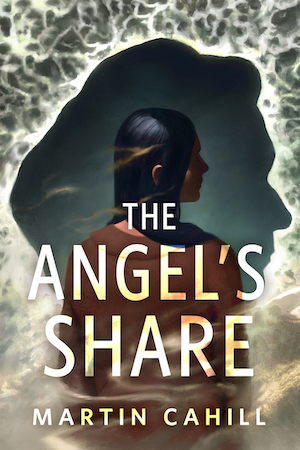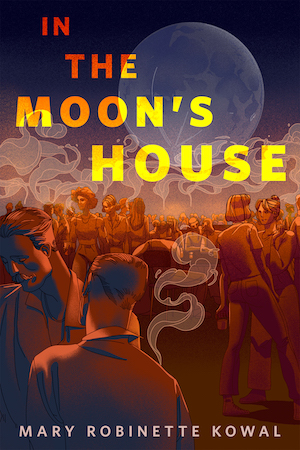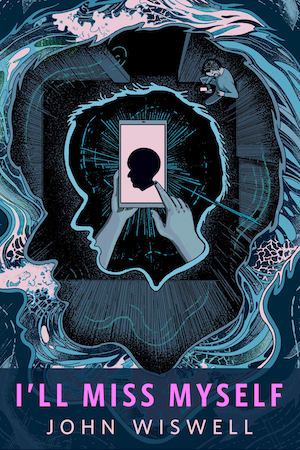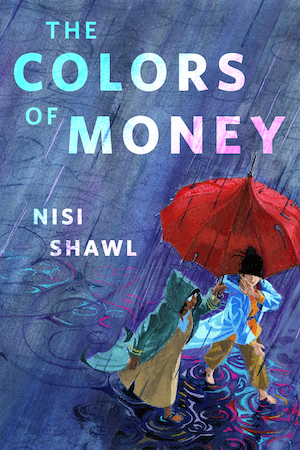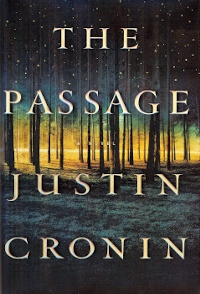What many have called the big book of the summer will be released June 8. It is easy to compare Justin Cronin’s 766-page The Passage with Stephen King’s The Stand, Robert McCammon’s Swan Song, Guillermo Del Toro and Chuck Hogan’s The Strain, and any number of vampire novels, post-apocalyptic thrillers and tales about government experiments gone awry. And, although Cronin’s doorstop-sized saga, the first in a proposed trilogy, is far from unique, it is a compelling and addictive read that will keep you up well past your bedtime, and may even affect your dreams once you close your eyes.
FBI agent Brad Wolgast and his partner have been going around the country offering twelve death-row inmates the chance to exchange their imminent executions for becoming volunteers in an experiment at a secret Colorado installation. It is not surprising that all of the criminals accept. Significantly, Babcock, the first murderer on the list, is the embodiment of evil, and Carter, the last, is not only innocent of the crime, but he is a kind, generous and loving soul.
After delivering Carter, Wolgast thinks his job is finished, but, at the last moment, he is assigned to collect one more person. Only this time the subject is not a criminal, but a six-year-old named Amy. Exactly how the government agency singled out this young girl is not explained, but the idea of involving a child severely tests Wolgast’s sense of morality. Nevertheless, the agent does his job.
Roughly, the first third of the book covers the rounding up of the twelve convicts and Amy, explaining what the government is up to, and seeing the whole mess fall apart with world-shattering consequences. The first twelve “volunteers” have been subjected to a virus, transformed into vampire-like beings and escape to pass their disease to others. Amy, too, is changed, but not in the same way. I read up to this point non-stop and was glad for the major shift in the narrative so I could get some sleep.
For the rest of the book, 92 years have passed. A small community survives in the California desert in a walled enclave equipped with powerful floodlights that never allow for darkness and, for the most part, keep the “virals” away. But the batteries that store the energy from wind turbines are dying, and it is only a matter of time before the lights go out.
One day a lone “walker” is spotted outside the walls. Amy has returned to the story. Some bad things happen, and Amy and those who brought her inside the walls are blamed. A few of the residents of the enclave decide that the only way to save the child, their friends and the community is to head to Colorado where all of this started and see if there is anyone left alive who can help them.
Like The Stand, the best part of the narrative is the journey, most of it on foot, as the intrepid band of travelers cross a decimated America and discover that they can trust nothing and no one.
Cronin’s greatest gifts are characterization and description. When certain characters are killed or even die naturally, as they must in a book of this length, it is like losing friends. Readers will feel sympathy for the villains as well as the protagonists, an accomplishment that sets this book apart from most horror novels.
It is easy to visualize the desolation that comes nearly a century after the cataclysm and to see how the earth begins to repair itself after humanity is no longer able to spoil it.
The biggest disappointment I had after finishing The Passage, was simply that. I have to go back to reading ordinary books again. I noticed that I read more slowly near the end to make the book last, but now it is finished. On the positive side, the saga should continue, though the publisher has not announced a date for the next installment.
Mark Graham reviewed books for the Rocky Mountain News from 1977 until the paper closed its doors in February 2009. His “Unreal Worlds” column on science fiction and fantasy appeared regularly in the paper for over two decades. He has reviewed well over 1,000 genre books. If you see a Rocky Mountain News blurb on a book it is likely from a review or interview he wrote. Graham also created and taught Unreal Literature, a high school science fiction class, for nearly 30 years in the Jefferson County Colorado public schools.


